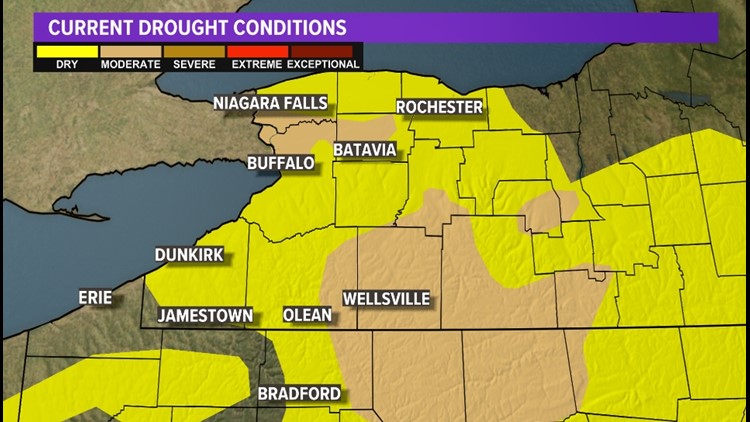BUFFALO, N.Y. — In the last update for the month of August, Western New York has seen the expansion of dry to moderate drought conditions but the severity of the drought has not changed, i.e. gotten better or worse.
Thursday the latest update to the New York State Drought Monitor was released, and with no surprise, the conditions across Western New York have not changed much. The two points to note is the expansion of the abnormally dry conditions across almost all of Chautauqua County as well as the decreasing area of the moderate drought conditions across portions of Wyoming County.
Then there's portions of northern Erie, central Genesee and southern Niagara County still under a classified moderate drought with some towns experiencing those conditions for over two weeks now. The other Western New York region with moderate drought conditions is eastern Cattaraugus County and almost all of Allegany County. Some towns within that category are behind in seasonal rainfall by 2 to upwards of 4 inches.
The rest of Western New York, with the exception of a sliver of southern Chautauqua County, has abnormally dry conditions.
The "moderate drought" category, which is also known as D1, is defined by the need for more irrigation, the threat for wildfires increases, and voluntary water conservation may be requested.
The "abnormally dry" category, which is also known as D0, is defined by having lower surface water levels, lower than average soil moisture, and the potential for stunted crop growth.
By the numbers, just over 55% of New York State has the definition of abnormally dry soil. Moderate drought conditions make up just over 21% percent of the state with about 4% even within the severe drought. That area is farther downstate along Long Island and Hudson Valley. No region across New York State is has the designation of extreme or exceptional drought.



